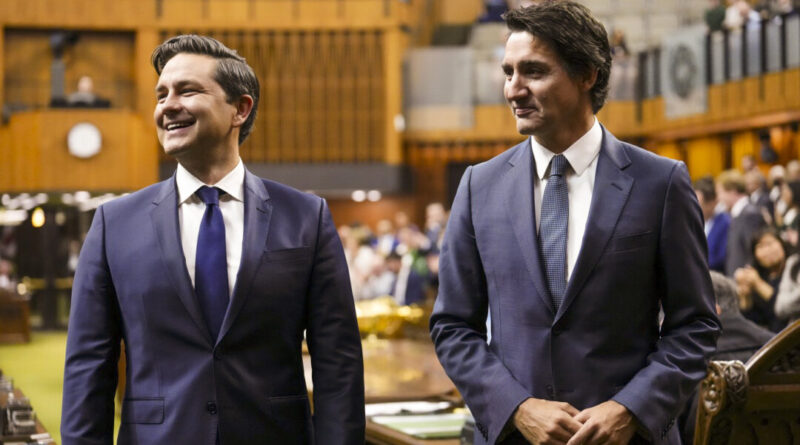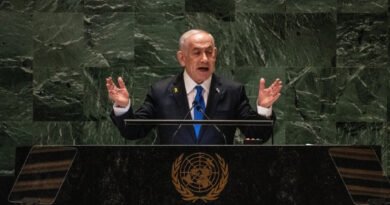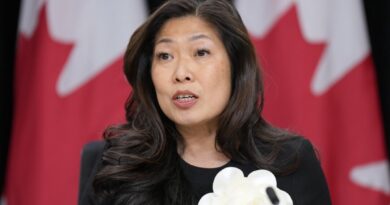Prime Minister Justin Trudeau and Conservative Leader Pierre Poilievre continued their heated debate on the carbon tax as the House of Commons resumed, exchanging criticisms over the country’s current state.
During Question Period on Sept. 16, Poilievre slammed Trudeau, saying, “After nine years of NDP-Liberals, tax is up, cost’s up, crime’s up, time’s up. And now [Trudeau] wants a 300 percent carbon tax hike, all the way up to 61 cents a litre. Why not let Canadians choose a common-sense Conservative government that will axe the tax, build the homes, fix the budget, and stop the crime now?”
The Conservative Party has been emphasizing the federal carbon tax as a key issue for over a year, arguing that it has led to increased prices for Canadians in the midst of a cost-of-living crisis. The Tories have criticized Ottawa’s plans to incrementally raise the tax by
$15 each year until 2030 when it reaches $170 a tonne, and have introduced motions in the House of Commons to abolish it.
In contrast, the Liberals argue that a carbon tax is the most effective way for Canadians to combat climate change, and state that
8 out of 10 Canadians receive more money back than they pay through the Canada Carbon Rebate.
Trudeau hit back at Poilievre by asserting that Canadians have been seeking solutions to their challenges over the summer, accusing Poilievre of being self-centered and focused on his political interests.
“We’re going to keep focused on doing the things that [Poilievre] refuses to do, whether it’s him voting against dental care, whether it’s him voting against childcare, whether it’s him voting against a National School Food Program, we’re going to still deliver the things that matter to Canadians,” Trudeau said.
Poilievre also referenced an Environment Canada
report provided to the Parliamentary Budget Office (PBO) in May, which projected a $25 billion decrease in Canada’s real GDP by 2030 due to the carbon tax. Poilievre labeled the report, requested by Environment Minister Steven Guilbeault to be kept confidential, as evidence of “carbon tax fraud.”
Trudeau countered by criticizing the Conservatives for having a “do-nothing climate plan” that would not address natural disasters like floods, forest fires, and droughts that have adversely affected the Canadian economy in recent times.
Looming Non-Confidence Vote
With the New Democrats terminating their supply-and-confidence agreement with the Liberals, raising doubts about a possible non-confidence vote, which could potentially trigger an early election, as the minority Liberal government’s stability hangs in the balance.
Poilievre has expressed intentions to
propose a non-confidence motion at the “earliest opportunity” upon the House’s return. Meanwhile, NDP Leader Jagmeet Singh has not explicitly committed to supporting a non-confidence vote, emphasizing a case-by-case evaluation of House votes to serve Canadians’ best interests.
Following the NDP’s withdrawal from the agreement, Bloc Québécois Leader Yves-François Blanchet hinted at leveraging the situation to secure concessions from the Liberals in return for their support on crucial votes. Blanchet expressed reluctance to trigger an early election, citing Conservative leads in polls outside Quebec, as he believes “Quebecers don’t want the Conservatives.”
Blanchet cautioned that navigating Parliament without instigating a non-confidence vote requires careful consideration, likening the situation to a dangerous game of chicken with multiple cars on a collision course, hinting at potential wreckage ahead.





